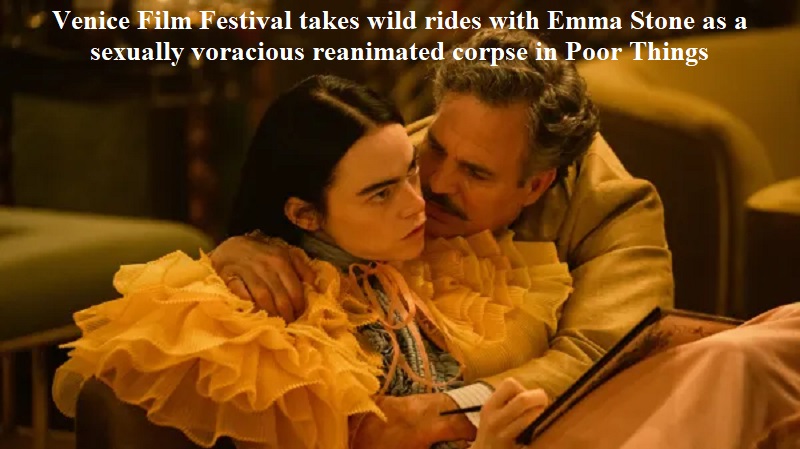
The Venice Film Festival took audiences on thrilling cinematic journeys with Emma Stone portraying a sexually awakened reanimated corpse in “Poor Things,” and Wes Anderson offering his unique take on Roald Dahl’s work.
“Poor Things,” a feminist reimagining of Frankenstein, left critics labeling it an “instant classic.” Emma Stone’s character, Bella, brought back to life with an infant’s brain by a mad scientist (played by Willem Dafoe), explores her sexuality in explicit scenes, breaking Hollywood norms. Stone couldn’t attend the festival due to the ongoing actors’ strike, but director Yorgos Lanthimos praised her for embracing the role and working with an intimacy coordinator, highlighting the importance of this role on set. The film, a brilliant commentary on the control of women, received applause and laughter from the audience in Venice. Lanthimos, known for his visually inventive and dark comedies, creates a steampunk 19th-century Europe with surreal touches like duck-goats and pig-dogs.
Wes Anderson, another indie darling, received a lifetime achievement award in Venice and presented “The Wonderful Story of Henry Sugar,” a 40-minute film based on a Roald Dahl short story. This is one of four Dahl adaptations he has made for Netflix, featuring Benedict Cumberbatch, Ben Kingsley, and Ralph Fiennes. Anderson expressed his strong stance against altering authors’ books for sensitivity reasons, stating that once a piece is finished, it should remain unchanged.
Mads Mikkelsen starred in “The Promised Land,” a gripping historical epic about a low-born soldier seeking self-improvement. However, Venice missed several star appearances due to the Hollywood actor and writer strike, primarily over pay and concerns about AI taking over roles.
Upcoming films in Venice include Sofia Coppola’s “Priscilla,” exploring the life of Elvis Presley’s wife, and David Fincher’s “The Killer,” featuring Michael Fassbender and Tilda Swinton. Controversial directors Woody Allen and Roman Polanski also present their films, “Coup de Chance” and “The Palace,” respectively, out of competition.
Overall, Venice showcased a diverse range of films, from feminist reimaginings to Roald Dahl adaptations, all while navigating the challenges posed by ongoing industry strikes.

Post Your Comments